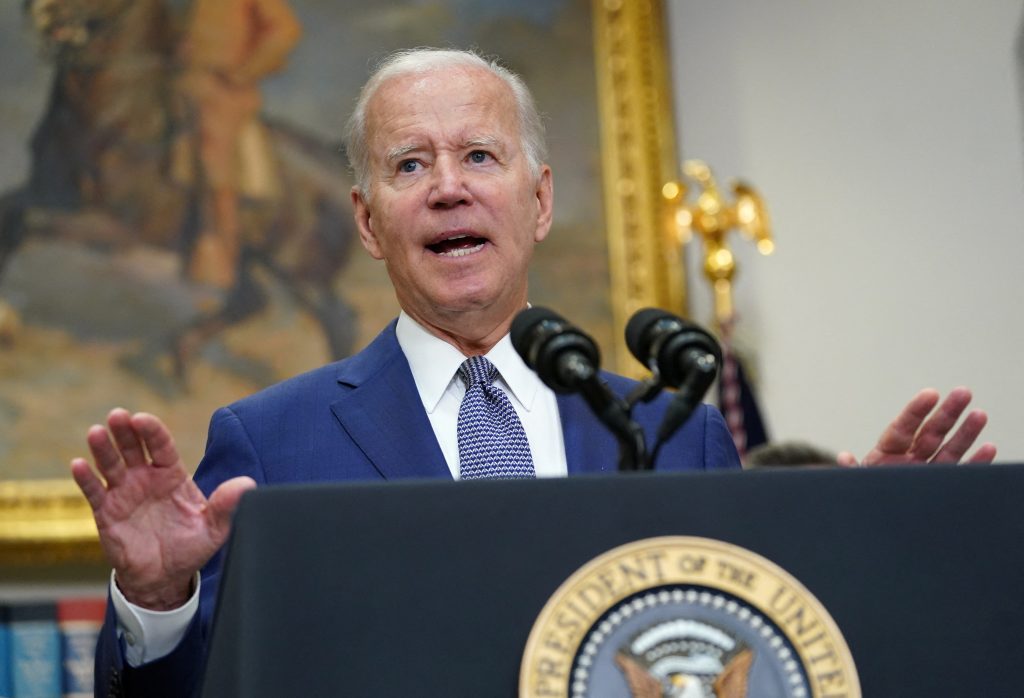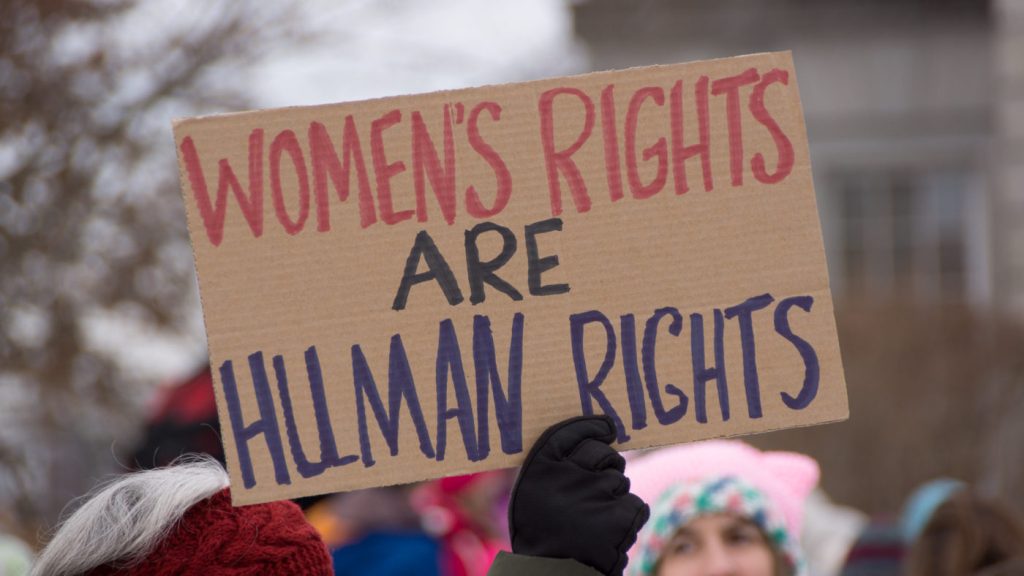Overview: President Biden Takes Action to Enhance Access to Contraception through Executive Order.

President Biden is poised to issue a significant Executive Order focusing on Strengthening Access to Affordable, High-Quality Contraception and Family Planning Services. This Executive Order, the third of its kind under his administration, specifically targets the protection and expansion of contraception access, addressing the pressing need for comprehensive reproductive healthcare. The decision comes in the wake of the Supreme Court’s ruling in Dobbs v. Jackson Women’s Health Organization and the subsequent healthcare crisis, emphasizing the growing importance of contraception in ensuring women’s access to essential healthcare services.
By signing this Executive Order, President Biden demonstrates a firm commitment to address the challenges faced by individuals seeking contraception and family planning services. The Order encompasses a range of initiatives aimed at enhancing affordability, breaking down financial barriers, and expanding insurance coverage for contraception services. Additionally, it focuses on improving the quality and availability of contraception options, promoting evidence-based approaches and incorporating the latest advancements in medical technology.
This Executive Order not only underscores the administration’s determination to protect reproductive rights but also signifies the importance of empowering individuals to make informed decisions about their reproductive choices. By prioritizing contraception accessibility, President Biden aims to eliminate barriers that hinder individuals from accessing critical services. Ultimately, the Order seeks to create a healthcare landscape that ensures every person, regardless of their circumstances, can access the contraception and family planning services they need to make choices that align with their own well-being and aspirations.
In the upcoming Executive Order, President Biden will unveil a series of measures aimed at:
Enhancing Women’s Access to Affordable Contraception through Private Health Insurance will be a key focus of the Executive Order. The President’s directive will instruct the Secretaries of the Treasury, Labor, and Health and Human Services (HHS) to explore innovative guidance that guarantees comprehensive coverage, without cost sharing, for all contraceptives approved, granted, or cleared by the Food and Drug Administration (FDA) under the Affordable Care Act. Additionally, the Order will streamline the process of obtaining the necessary care, addressing the needs and preferences of women. By taking this action, the administration aims to further dismantle barriers that hinder women’s ability to obtain contraception prescribed by their healthcare providers, building upon the progress achieved through the Affordable Care Act.
Advancing Expanded Availability of Over-the-Counter Contraception is a key objective highlighted in the Executive Order. The Order will mandate the Secretaries of the Treasury, Labor, and HHS to explore fresh initiatives aimed at enhancing access to affordable over-the-counter contraception, including emergency contraception. These measures may involve facilitating discussions among pharmacies, employers, and insurers to identify pathways for expanding affordable access to over-the-counter contraception. Additionally, the Order will prioritize the identification of effective practices to ensure coverage of over-the-counter contraception without any cost burden on patients. Furthermore, the issuance of guidance will be encouraged to streamline the process of seamless coverage for over-the-counter contraception. By taking these actions, the administration aims to promote widespread availability and affordability of over-the-counter contraception, empowering individuals to make informed choices about their reproductive healthcare.
Promoting Affordable Family Planning Services and Supplies via the Medicaid Program is a focal point addressed in the Executive Order. The Order mandates the Secretary of HHS to explore fresh initiatives aimed at expanding access to cost-effective family planning services and supplies through the Medicaid program. This may include the dissemination of best practices to State Medicaid programs, with a particular emphasis on delivering high-quality family planning services and supplies through Medicaid managed care arrangements. By taking these actions, the administration aims to enhance access to comprehensive family planning services and supplies for individuals covered under the Medicaid program, ensuring that they receive the necessary support and resources to make informed decisions about their reproductive health.
Enhancing Contraception Coverage within the Medicare Program is a key focus outlined in the Executive Order. The Order directs the Secretary of HHS to explore new measures aimed at strengthening the coverage of contraceptives for Medicare beneficiaries, including those enrolled in Medicare Advantage and Medicare Part D plans. The objective is to improve the availability and affordability of contraception options, ensuring that Medicare beneficiaries, particularly women of reproductive age with disabilities, can access contraceptives without encountering unnecessary barriers. By taking these actions, the administration aims to promote equitable access to contraception within the Medicare program, empowering beneficiaries to make informed choices about their reproductive health.
Promoting Contraception Access for Service Members, Veterans, and Federal Employees is a crucial objective addressed in the Executive Order. The Order directs the Secretary of Defense, the Secretary of Veterans Affairs, and the Director of the Office of Personnel Management to explore novel initiatives aimed at ensuring comprehensive coverage of contraception for service members, veterans, and federal employees. Additionally, the focus will be on enhancing awareness among these individuals and their families about how to access these contraception benefits effectively. These actions will build upon the efforts already undertaken by these agencies to strengthen access to contraception for those they serve. By taking these measures, the administration aims to prioritize the reproductive health needs of service members, veterans, and federal employees, ensuring equitable access to contraception and promoting informed decision-making regarding family planning.
Enhancing Contraception Access in Federally-Supported Health Care Programs is a significant focus highlighted in the Executive Order. The Order directs the Secretary of HHS to explore measures aimed at promoting and expanding the availability of contraception within various federally-supported health care and human services entities. This includes Title X family planning clinics, community health centers, and the Indian Health Service. Potential actions may involve the issuance of new guidance, provision of technical assistance, and development of training resources to ensure that providers in these programs have a clear understanding of their obligations under Federal law. This includes the provision of culturally and linguistically appropriate family planning services. By taking these steps, the administration seeks to strengthen the access and quality of contraception services within these programs, ensuring that individuals receive comprehensive and appropriate care aligned with their unique cultural and linguistic backgrounds.
Promoting Affordable Contraception Access for Employees and College Students is a key focus addressed in the Executive Order. The Order directs the Secretary of Labor to identify and disseminate best practices to employers and insurers, ensuring the availability of affordable and high-quality contraception for employees. Additionally, to enhance access for college and university students, the Order mandates the Secretary of Education to convene institutions of higher education, fostering the exchange of best practices and strategies to ensure that students are well-informed about their options for accessing contraception. By taking these actions, the administration aims to support individuals in the workforce and students in higher education by promoting comprehensive and accessible contraception services, empowering them to make informed choices about their reproductive health.
Advancing Research and Data Analysis on Contraception Access is a pivotal focus outlined in the Executive Order. The Order directs the Secretary of HHS to provide support for research, data collection, and data analysis pertaining to contraception access and family planning services. The objective is to systematically document the existing gaps and disparities in contraception access while highlighting the tangible benefits of comprehensive coverage. By conducting rigorous research and analysis, the administration aims to generate valuable insights that can inform evidence-based policies and interventions aimed at improving contraception access for individuals across various demographics and healthcare settings.

The recent announcements build upon the ongoing efforts of the Biden-Harris Administration to preserve access to contraception, including in response to two previous Executive Orders aimed at safeguarding reproductive healthcare services. The Administration has undertaken various actions to uphold these goals, including:
Enhancing Protections for Women Covered by Private Health Insurance: In accordance with the Affordable Care Act, the majority of private health plans are mandated to offer contraception coverage and family planning counseling without any out-of-pocket expenses. To ensure compliance with these provisions, the Departments of the Treasury, Labor, and HHS organized a meeting with health insurers and employee benefit plans. During this engagement, the agencies emphasized the importance of fulfilling their responsibilities to provide contraception coverage as mandated by law. Subsequently, the agencies issued comprehensive guidance clarifying the protections surrounding contraceptive coverage under the Affordable Care Act.
Expanding Access to Contraception through the Affordable Care Act: The Departments of the Treasury, Labor, and HHS have put forth a proposed rule aimed at enhancing access to contraception under the Affordable Care Act. The objective is to ensure that all women who require and desire contraception can readily obtain it. The coverage provided under this act has already had a profound impact, benefiting millions of women and resulting in significant cost savings on contraception.
Supporting Title X Clinics: To reinforce the delivery of high-quality family planning services, HHS has allocated resources to support Title X clinics through the Title X Family Planning Program. These funds have been instrumental in promoting equitable, affordable, client-centered care, as well as providing training and technical assistance to Title X clinics through the Reproductive Health National Training Center and the Clinical Training Center for Sexual and Reproductive Health. Recognizing the vital role played by Title X clinics in ensuring contraception access, the President’s Fiscal Year 2024 Budget Request includes a significant increase of 76 percent, amounting to $512 million, for the Title X Family Planning Program compared to the 2023 enacted level.
Promote Access through a Novel Public-Private Collaboration: HHS unveiled a fresh public-private partnership with Upstream, a nationwide nonprofit organization focused on enhancing access to contraception. Through this collaboration, Upstream will offer health centers cost-free, patient-centered training and technical assistance that are evidence-based, aiming to eliminate barriers at the provider level and ensure a comprehensive range of contraceptive options are available. This partnership capitalizes on Upstream’s substantial resources, amounting to $90 million, and builds upon their successful collaboration with over 100 healthcare organizations spanning 18 states. It will expedite their nationwide expansion, with the goal of transforming contraceptive care in over 700 health centers by 2030, ultimately benefiting 5 million women of reproductive age annually.
Enhance Contraception Access for Service Members, Families, and Veterans’ Dependents: The Department of Defense has expanded walk-in contraceptive care services at military hospitals and clinics to improve access for active-duty Service members and other beneficiaries of the Military Health System. Simultaneously, the Department of Veterans Affairs has proposed a rule to eliminate out-of-pocket costs for specific contraception types under the Civilian Health and Medical Program of the Department of Veterans Affairs, benefiting certain dependents of veterans.
Ensure Family Planning Services Access at Health Centers: The Health Resources and Services Administration has issued updated guidance to community health centers, reinforcing their responsibility to offer comprehensive family planning services to their patients. The guidance incorporates evidence-based recommendations and equips health centers with resources to provide high-quality family planning services, aligning with the goal of ensuring widespread access to essential reproductive healthcare.



